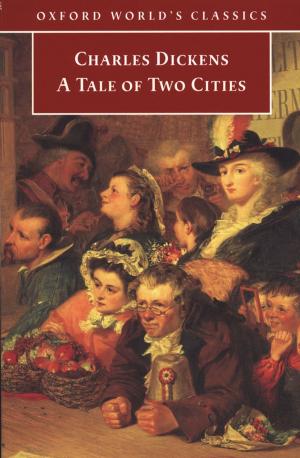| Author: | Natalie Jacobs | ISBN: | 9781476097091 |
| Publisher: | Natalie Jacobs | Publication: | June 10, 2012 |
| Imprint: | Smashwords Edition | Language: | English |
| Author: | Natalie Jacobs |
| ISBN: | 9781476097091 |
| Publisher: | Natalie Jacobs |
| Publication: | June 10, 2012 |
| Imprint: | Smashwords Edition |
| Language: | English |
“and what is music, really, but the patterns that sounds make in their passage through time? that was what he heard, all his life; the patterns, the sounds, and time which is the silence that surrounds them.”
As a small child Franz Schubert discovers the magic of sound. He soon realizes his gift for putting sound patterns together to make glorious music. In his tragically short life he writes well over 200 songs, chamber pieces, symphonies - all the works we know and love today. But he is shy and self-deprecating and feels himself to be in the shadow of the protean, charismatic Beethoven, also working in Vienna in the first quarter of the 19th century. Schubert’s pieces are appreciated by his many devoted friends and musical colleagues who perform them mainly in their homes, but he is able to publish almost none of them. As he works tirelessly, we are privy to his creative fervor as well as his anguish and self-doubt. Natalie Jacobs, in this posthumously-published novel, depicts the composer as an immensely appealing young man with a sly sense of humor and an overpowering devotion to his muse.
Against the backdrop of the Congress of Vienna and Metternich’s police state, Schubert works and socializes with his many devoted friends and lovers in Vienna, all actual people, in this carefully-researched novel. As he was in real life, he is present at a famous event: the chapter entitled “An die Freude” depicts his life-changing experience at the premiere performance of Beethoven’s ninth symphony. He makes two trips to Hungary to teach the daughters of a minor nobleman. This is his first time outside the city and his immersion in nature inspires some of his best-known songs.
But Schubert has contracted a terrible illness from a male prostitute which slowly but steadily progresses. He continues composing almost constantly, his music becoming darker as he struggles with his health. In the moving last chapter his family and friends gather around his deathbed as he reflects on his life and prepares to die: “…his life was music, all of it was only a pattern, a phrase in the song that God was singing. He had only tried to write down a little of that song, find a few of the patterns that made up Eternity.” Both Franz Schubert and Natalie Jacobs died in their early 30’s.
EDITORIAL REVIEWS
“...A thoughtfully drawn portrait of Schubert’s interior world adds depth to a straightforward story...The novel’s most lovely passages occur when Schubert hears music—his own songs performed, a stirring composition in his mind, or the work of the haunting master Beethoven. The author writes about Schubert’s musicality with grace and serious compassion. An air of mystery is added when Jacobs’ parents reveal in the afterword that no one suspected her to have such a natural affinity with Franz Schubert; her dreamy portrait of the composer confirms a deep connection. Fans of historical fiction may especially appreciate this entertaining recreation of Schubert’s life; familiarity with the composer and his music is not a prerequisite.”
--Kirkus Reviews
“Once I started the book, I couldn't put it down. Natalie was a very gifted writer. The prose is beautifully rendered, the portrait of Schubert and his contemporaries utterly convincing without seeming too heavily researched, the story of his inner life compelling.”
--Eileen Pollack, author of Breaking and Entering, Zell Director of the MFA Program in Creative Writing at the University of Michigan
“There is never any doubt of her facts nor of the possibility of her fictions. Her intimately detailed inventions are woven into the tapestry of reality so seamlessley as to leave no question that they could be actual details in the life of the great composer.”
--Laurence W. Thomas, Founding Editor of Third Wednesday magazine, published poet and educator.
“and what is music, really, but the patterns that sounds make in their passage through time? that was what he heard, all his life; the patterns, the sounds, and time which is the silence that surrounds them.”
As a small child Franz Schubert discovers the magic of sound. He soon realizes his gift for putting sound patterns together to make glorious music. In his tragically short life he writes well over 200 songs, chamber pieces, symphonies - all the works we know and love today. But he is shy and self-deprecating and feels himself to be in the shadow of the protean, charismatic Beethoven, also working in Vienna in the first quarter of the 19th century. Schubert’s pieces are appreciated by his many devoted friends and musical colleagues who perform them mainly in their homes, but he is able to publish almost none of them. As he works tirelessly, we are privy to his creative fervor as well as his anguish and self-doubt. Natalie Jacobs, in this posthumously-published novel, depicts the composer as an immensely appealing young man with a sly sense of humor and an overpowering devotion to his muse.
Against the backdrop of the Congress of Vienna and Metternich’s police state, Schubert works and socializes with his many devoted friends and lovers in Vienna, all actual people, in this carefully-researched novel. As he was in real life, he is present at a famous event: the chapter entitled “An die Freude” depicts his life-changing experience at the premiere performance of Beethoven’s ninth symphony. He makes two trips to Hungary to teach the daughters of a minor nobleman. This is his first time outside the city and his immersion in nature inspires some of his best-known songs.
But Schubert has contracted a terrible illness from a male prostitute which slowly but steadily progresses. He continues composing almost constantly, his music becoming darker as he struggles with his health. In the moving last chapter his family and friends gather around his deathbed as he reflects on his life and prepares to die: “…his life was music, all of it was only a pattern, a phrase in the song that God was singing. He had only tried to write down a little of that song, find a few of the patterns that made up Eternity.” Both Franz Schubert and Natalie Jacobs died in their early 30’s.
EDITORIAL REVIEWS
“...A thoughtfully drawn portrait of Schubert’s interior world adds depth to a straightforward story...The novel’s most lovely passages occur when Schubert hears music—his own songs performed, a stirring composition in his mind, or the work of the haunting master Beethoven. The author writes about Schubert’s musicality with grace and serious compassion. An air of mystery is added when Jacobs’ parents reveal in the afterword that no one suspected her to have such a natural affinity with Franz Schubert; her dreamy portrait of the composer confirms a deep connection. Fans of historical fiction may especially appreciate this entertaining recreation of Schubert’s life; familiarity with the composer and his music is not a prerequisite.”
--Kirkus Reviews
“Once I started the book, I couldn't put it down. Natalie was a very gifted writer. The prose is beautifully rendered, the portrait of Schubert and his contemporaries utterly convincing without seeming too heavily researched, the story of his inner life compelling.”
--Eileen Pollack, author of Breaking and Entering, Zell Director of the MFA Program in Creative Writing at the University of Michigan
“There is never any doubt of her facts nor of the possibility of her fictions. Her intimately detailed inventions are woven into the tapestry of reality so seamlessley as to leave no question that they could be actual details in the life of the great composer.”
--Laurence W. Thomas, Founding Editor of Third Wednesday magazine, published poet and educator.















